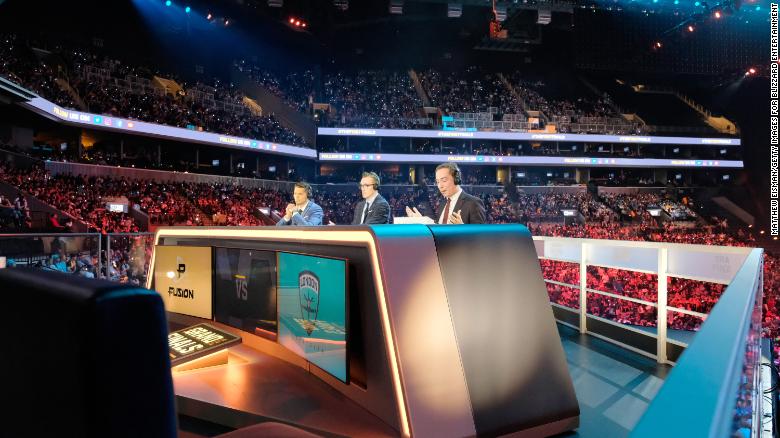What is eSports?
eSports describes the world of competitive, organized video gaming. Competitors from different leagues or teams face off in the same games that are popular with at-home gamers: Fortnite, League of Legends, Counter-Strike, Call of Duty, Overwatch and Madden NFL, to name a few. These gamers are watched and followed by millions of fans all over the world, who attend live events or tune in on TV or online. Streaming services like Twitch allow viewers to watch as their favorite gamers play in real time, and this is typically where popular gamers build up their fandoms.
Who watches eSports?
Short answer? A lot of people. According to a report from Newzoo, a market analytics company, 380 million people worldwide will watch eSports this year, including 165 million eSports enthusiasts (a term that describes frequent viewers, as opposed to occasional viewers). The bulk of these enthusiasts watch from North America, China and South Korea.
Tournaments and other events can attract viewing crowds that rival most traditional professional sports outings. The 2017 League of Legends World Championship drew more than 80 million viewers, making it one of the most popular eSports competitions ever. In July, ESPN and Disney XD announced they secured a multi-year deal to broadcast the Overwatch League, a brand-new international league with 12 franchises centered around the incredibly popular multiplayer first-person shooter came, Overwatch.
According to research from Newzoo, 588 major esports events were held in 2017.
Who plays eSports?
As hard as it may be to imagine for devotees of traditional sports leagues like the NFL or the NBA; eSports, at its highest levels, functions in a similar way. In fact, this April, the NBA held a draft for the launch of its new eSports league centered around the basketball-themed NBA 2K game franchise. During the draft, 102 professional eSports players were selected, with all of the pomp and circumstance normally reserved for players on the court.
Colleges have even gotten in on the action. More than 50 colleges have varsity eSports programs, recognized by a governing body called the National Association of Collegiate Esports. NACE championships dole out thousands of dollars in prize money, which is put towards scholarships for the winners.
Where’s the money in eSports?
According to research from Newzoo, eSports revenue will reach $906 million worldwide in 2018. By 2019, that number is expected to surpass $1 billion.
That’s a lucrative market, not only for the players, but for brands and video game producers as well. Madden 19, the game featured at the tournament in Jacksonville, is part of the long-running EA Madden Franchise. Since its inception nearly 30 years ago, the EA Madden Franchise has sold more than 130 million units, totaling more than $4 billion in revenue.
eSports players, not unlike traditional athletes, can rake in big money: Tournaments can boast millions of dollars in prize money, which is typically split between the players on the winning teams. That means the world’s very tip-top players can easily earn seven figures in a year. Teams and event organizers also benefit from tickets sales for these competitions. That popular League of Legends tournament from 2017? It generated $5.5 million in ticket sales.
After the shooting, EA Sports canceled the three remaining Madden Classic qualifier events to review safety protocols for competitors and spectators, according to a release issued by the gaming company.
Players also earn money from sponsorships, endorsements and league salaries. To that end, Newzoo reports brands will invest $694 million in eSports ventures this year alone.
According to the numbers and the seemingly unstoppable cultural momentum, eSports will continue to grow as an industry — and a pastime — for the foreseeable future. By the end of 2018, 1.6 billion people will have some knowledge of eSports — that’s more than one fifth of the entire world’s population. So if you haven’t heard much about eSports yet, give it time. Its spread, both globally and culturally, is inevitable.









